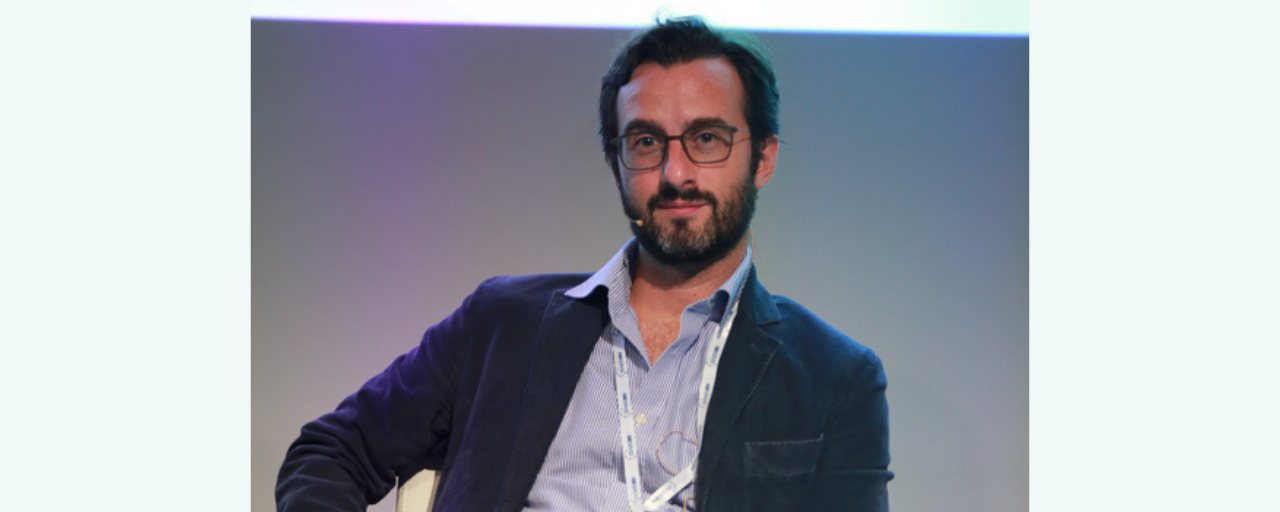After gaining important experiences abroad in digital innovation in multinational companies such as Vodafone and Samsung, he returns to Italy to lead the community, providing a point of reference for fintech in Italy.
Your professional experience is linked to digital innovation, "a way of life more than a job". How did you approach the world of Fintech?
I have always been attracted to the world of digital innovation and the continuous experimentation it entails, so I chose it as my profession. I was lucky enough to work on the first mobile payments projects globally: it was the first step towards the world of fintech. When the Fintech District was born in 2017, the potential of the sector was already clear to us insiders abroad. The opportunity to be an active part in the creation of the Italian ecosystem was indispensable. Even in Italy there would have been a project to facilitate dialogue between traditional operators and new players.
What does the Fintech District you are driving today look like and what are the activities you carry out?
The Fintech District is not a physical place, but a community of over 210 national and international fintech startups and scaleups. For them, we create opportunities to meet and discuss with corporate entities, so that they can collaborate with one another and develop open innovation projects. We help them grow and scale the market, we train and dialogue with stakeholders, including institutional ones, to carry out projects that effectively help the development of the Italian ecosystem so as to incentivize investments. Corporate and professional realities are also part of the community, whose choice to join is dictated by the propensity to innovate and the desire to develop collaborations based on openness and sharing.
What are the main results achieved and the next objectives?
At the birth of the project, in 2017, the community had 32 fintechs. The current exceeding 200 is an exceptional result, given that we are talking about more than 50% of Italian fintechs and important foreign realities such as the unicorns Klarna and Qonto. Our corporate members all include leading companies such as Poste and Fastweb. We have relationships with over 10 innovative hubs at an international level and we count on a network of around 40,000 contacts. Our role as enabler of direct connections between fintech and corporate is confirmed by the growth in the number of matches between the various players: + 22% in 2021 compared to the previous year. Among these is also the one that led to the acquisition of the REDO fintech by the corporate member OCS.
There are many goals that could be mentioned. We are part of the promoters of FIN + TECH, the acceleration program dedicated to startups that develop solutions and services in the fintech and insurtech fields. We are also part of the National Network CDP Accelerators, and in collaboration with Business International-Fiera Milano, we organize and promote the Milan Fintech Summit, a sector event now accredited nationally and internationally.
What are the priority/emerging needs and expectations of Fintech start-ups and the obstacles for innovation to thrive in this sector? On this point, how do you see the launch of the Bank of Italy's regulatory sandbox?
The sandbox is an excellent initiative that will facilitate the development of fintech in Italy, but it must be considered a starting point and not an arrival point. The biggest obstacle to the potential of the sector remains bureaucracy. Foreign examples show that there is more rapid growth when institutions are the first promoters of an industry. Innovation needs a fluid environment to express its full potential also in terms of impact on the real economy and investments. What the Italian Fintech ecosystem needs is to be able to communicate more and more with institutions and regulatory authorities with one voice and have certain response times, as well as scalable projects and investments. We are working daily to ensure that this is the common direction.
Fintech makes financial services closer to customers and revolutionizes the modus operandi of all operators. Many virtuous initiatives are born in our country, but there is also a great fragmentation. Is the Fintech revolution done together?
Absolutely yes! Italian fintech still needs to grow and we need to know how to collaborate together in order for it to happen. It is with this spirit that the Fintech District aggregates, enters into partnerships, and creates critical mass because the fragmentation of initiatives, even if virtuous, does not do the sector good. Only if all the players operate in the same direction can the conditions be created for a more solid and reference industry at the European level.








